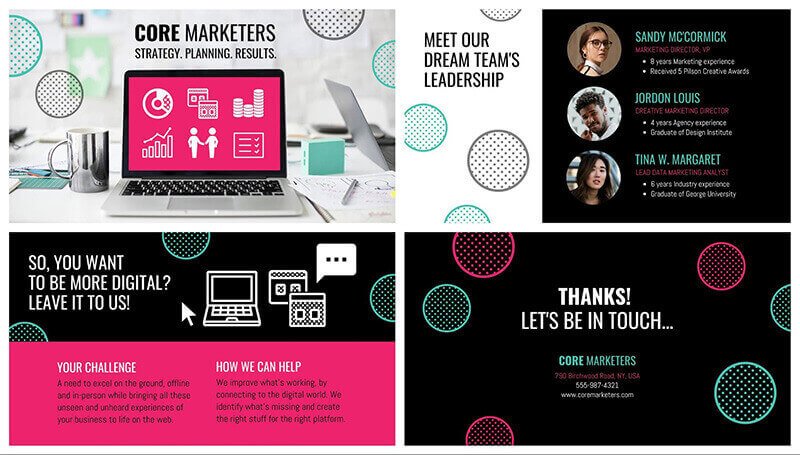How to win at pitches
It doesn’t matter what role you work in or even the industry in which you operate; chances are, you’ll need to give a presentation occasionally. That could be a presentation to win a new client, to your boss, to get them to do something you’d like, or even to your team to help them to change behaviours.
In my line of work, I’m often asked to pitch to new clients before they agree to engage with me, and those pitches usually take a long time to define and formulate. Therefore, you want to ensure that your effort is rewarded in winning as many pitches as possible.
Our latest blog shows you how to win at pitches when pitching to a prospective client. We deep dive into the must-haves for your pitch deck, what you should say to clients when meeting at a pitch, and what you should avoid saying.
Get in front of your client at all costs.
Pitching in person is far better than just emailing a pitch deck, as there is no way you can gauge a reaction from an email. What’s more, delivering the pitch in person, face-to-face or virtually allows you to develop a deep emotional connection with your audience. Creating that emotional connection is what will help you to win the pitch.
However you deliver the pitch, you should ensure that you can see your audience and your audience can see you. Doing so lets you pay attention to their body language and how they react to your words. It will help you know if they are interested and engaged in your pitch or bored. Both will help you with your delivery.
For example, you might dwell on specific topics if your audience shows signs of a positive reaction or speed up the slides if they switch off.
What should my pitch look like?
When presenting, you should always deliver with a slide show.
Canva is a free tool that offers beautifully designed templates to pop your content into and then download as a PDF to present at your pitch. Known as a deck, make sure it’s beautiful, and the design is top-notch - but dont let the design confuse what you want to convey - the information within your deck is way more important than the pretty images and graphics you might employ.
There are two main parts to a pitch deck.
What you do
How have you helped your clients
What you do
Start with a short section, at most five slides, introducing you and your business. You should include a bit about your team, including the leadership structure and where your offices are based. You want to add your capabilities too, i.e. what makes you good at what you do - what are you known for?
Image credit: twittwooyou.com
How have you helped your clients?
This is the most important part of the pitch deck, and you should provide two or three case studies. These case studies will demonstrate your client’s challenge, what you did for them and how your work helped them.
Image credit: www.slidemodel.com
Ideally, your case studies should align with the industry of the client you are pitching to, so they can see you are already comfortable working in their field and have demonstrated straightforward ways that you can help others just like them.
Image credit: www.venngage.com
At the end of each case study, you should show the results of your work.
In other words, demonstrate the ROI of your efforts. When you finish a piece of work, you should actively ask the client how your work has helped them. Take note of the results, listen and record what they say and summarise quantitatively how your work has helped. For example, have you helped your client increase web traffic? Maybe your work has helped them increase sales. Share these results at the end of each case study.
Image credit: www.venngage.com
After you have delivered these two sections, you can show off with some pageantry. This is where you showcase other work, not necessarily aligned with the client’s industry by demonstrating the breadth of your work. Showing different work from different sectors can also spur deeper conversations. What’s more, your presentation closes with the bits of your work that you are most proud of.
Like what you’ve read?
Jo Buchanan, the author of this blog, is the Founder and Director of TwitTwooYou Limited, a business growth strategic consultancy centred on getting brands noticed. TwitTwooYou offers smart services to help businesses grow and achieve their aspirations and goals. Want to get your brand noticed? Get in touch for a free, no-obligation chat.





